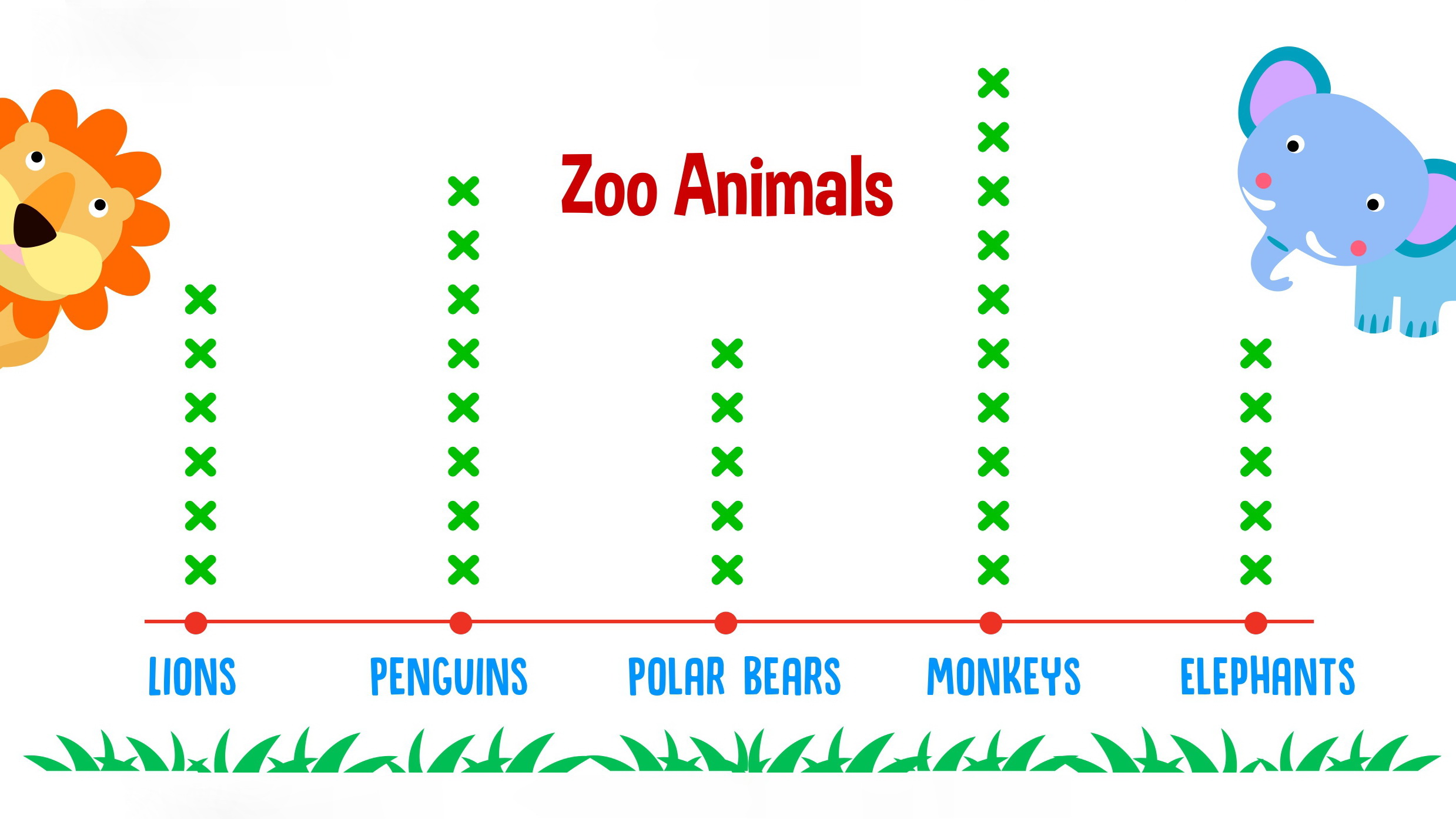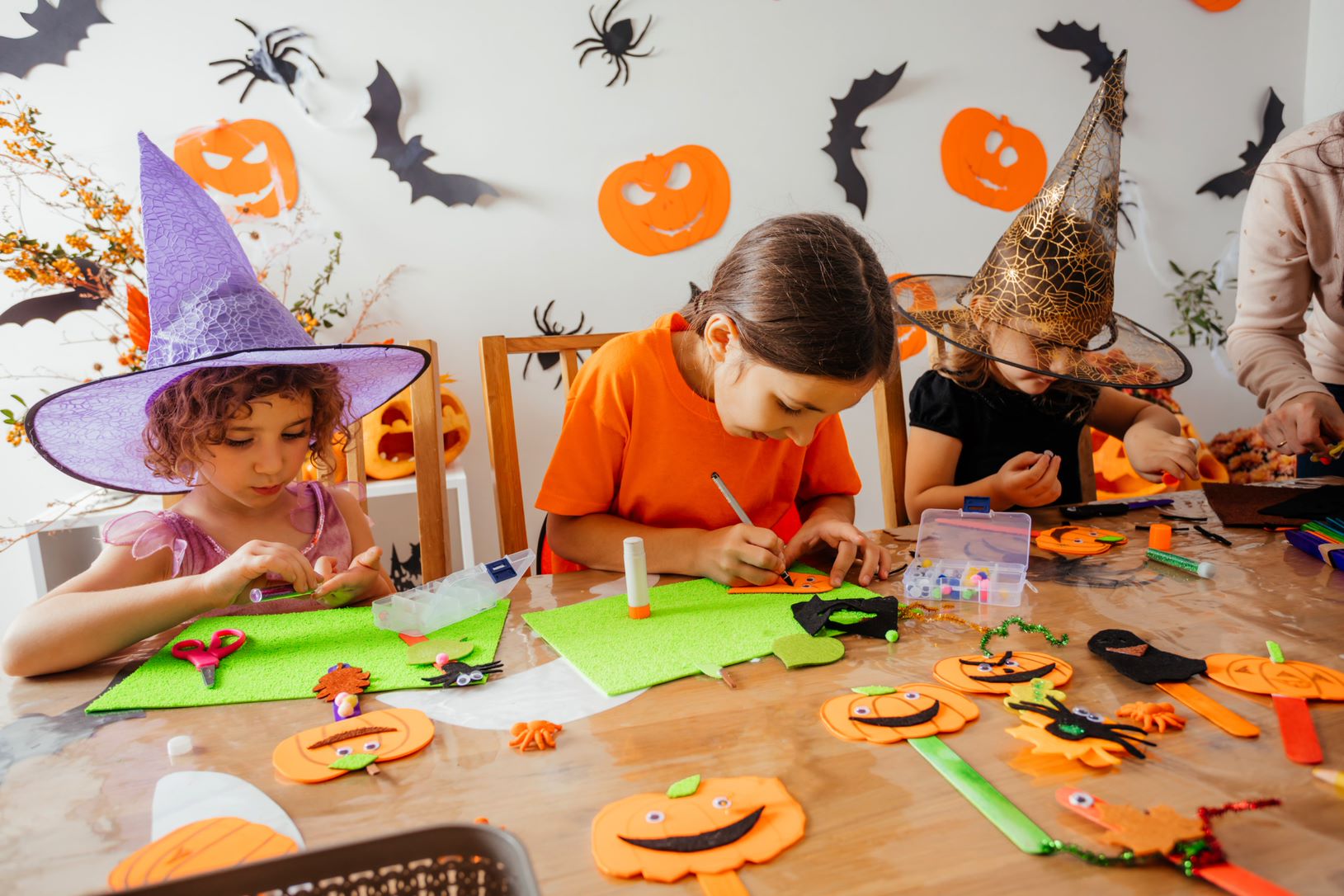Numbers worksheets activities for Ages 8-9
6 filtered results
-
From - To
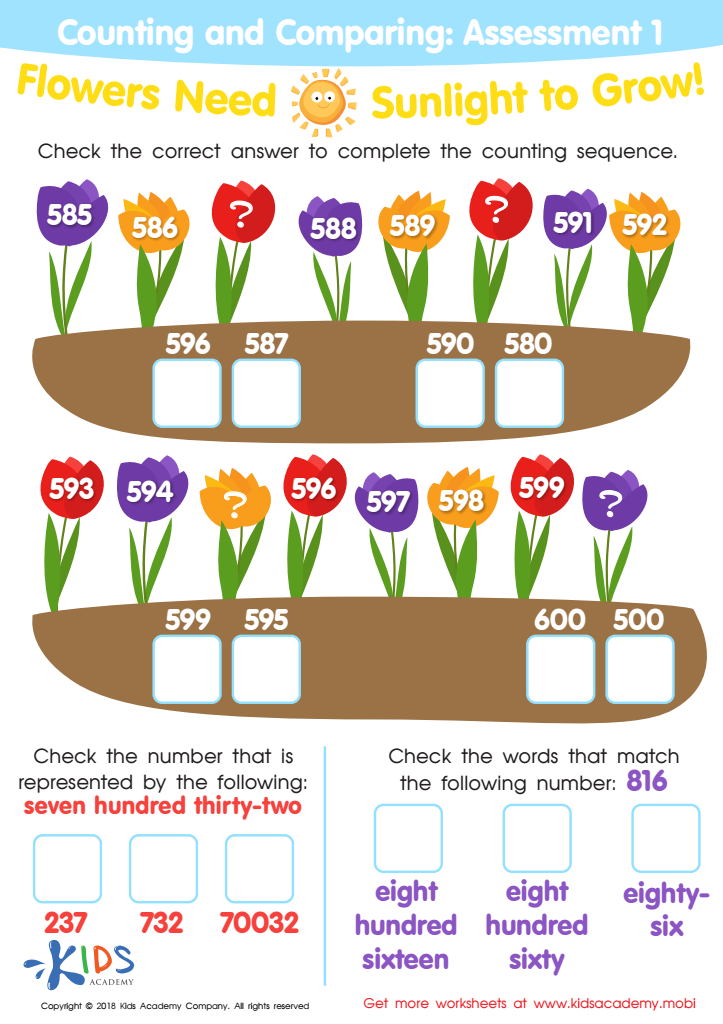

Counting and Comparing: Assessment 1 Worksheet
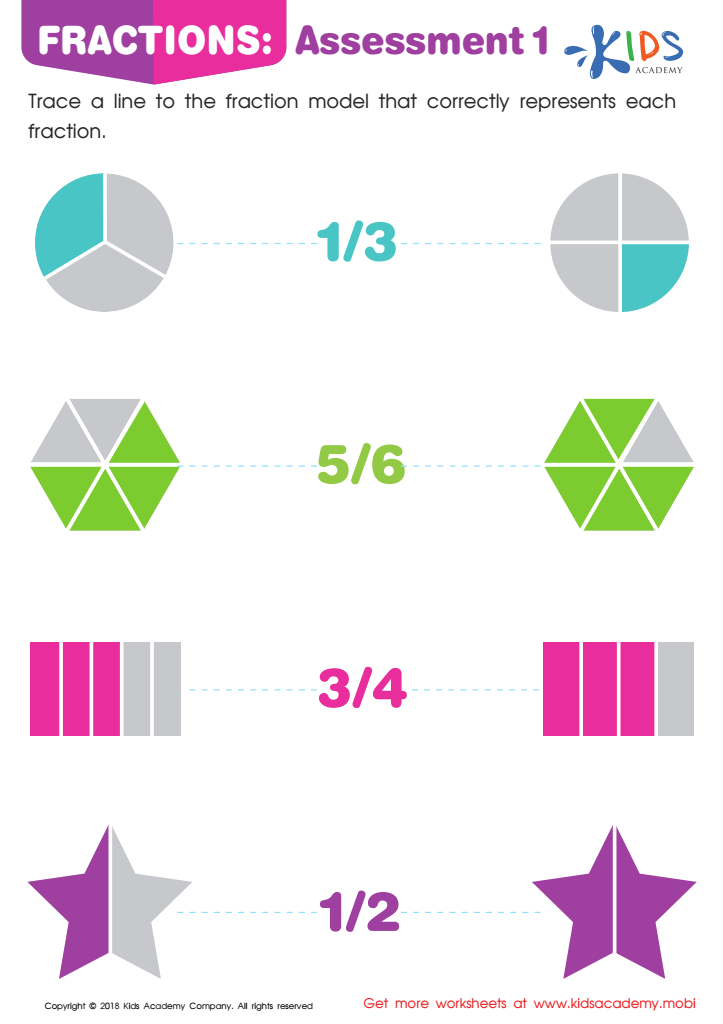

Fractions: Assessment 1 Worksheet
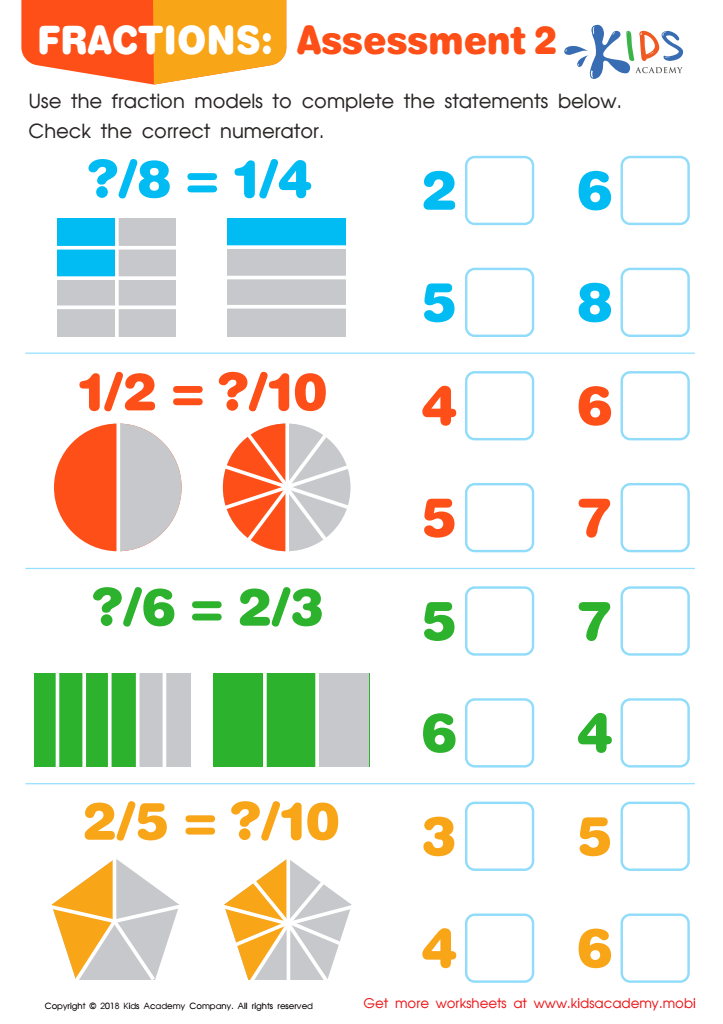

Fractions: Assessment 2 Worksheet
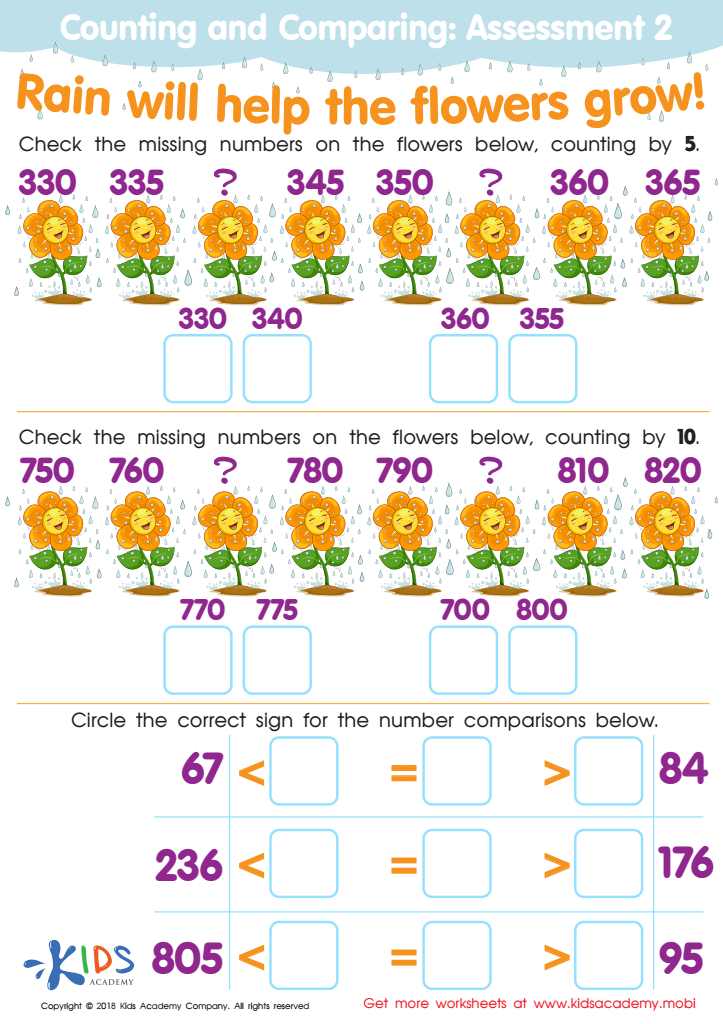

Counting and Comparing: Assessment 2 Worksheet
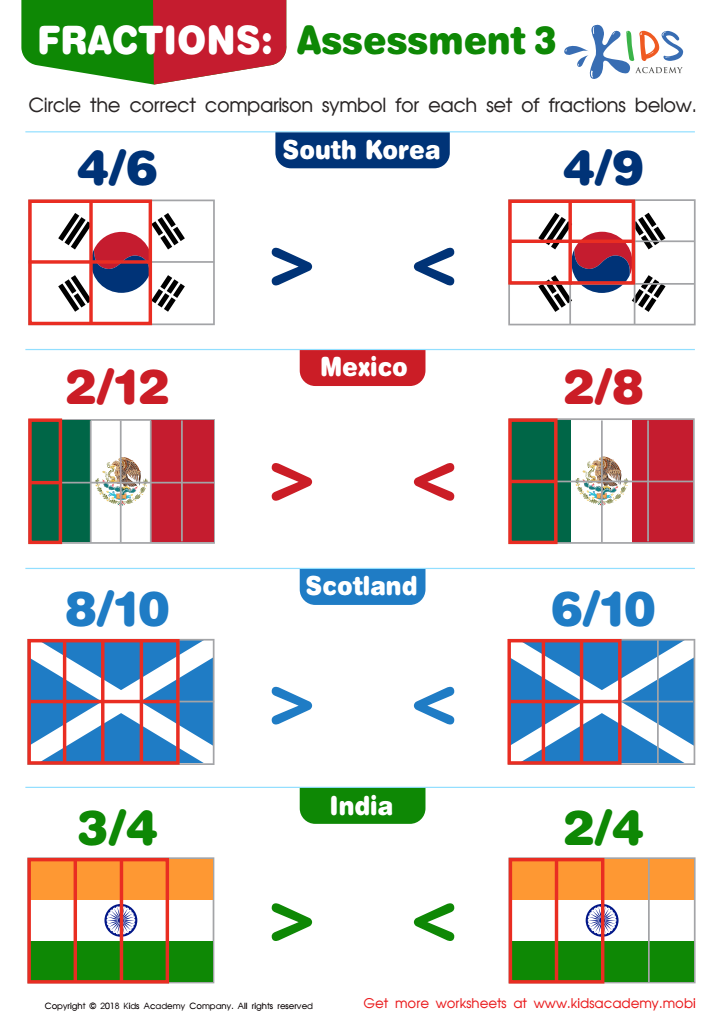

Fractions: Assessment 3 Worksheet
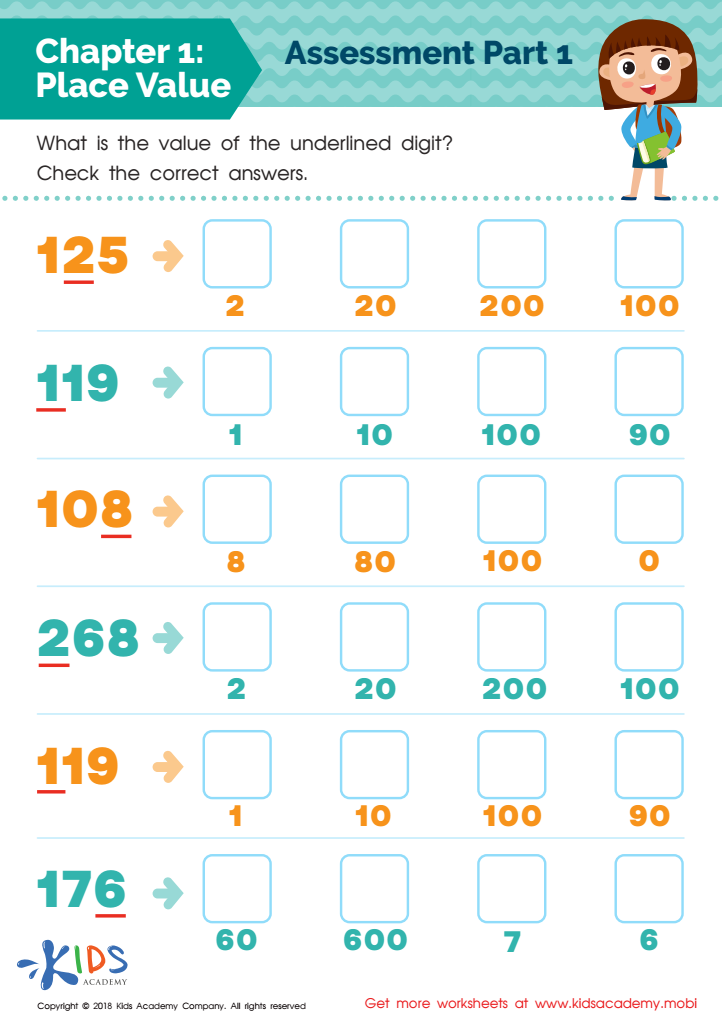

Place Value: Chapter 1 Worksheet
Numbers worksheets activities are an essential tool in the sphere of education, especially when it comes to developing numerical literacy and problem-solving skills among learners. These activities are carefully designed to make the abstract and sometimes complex world of numbers more tangible and understandable for students of all ages. By engaging with numbers worksheets activities, learners can achieve a multitude of educational benefits that contribute significantly to their academic and practical understanding of mathematics.
Firstly, numbers worksheets activities offer a structured approach to learning. They guide students step-by-step through various mathematical concepts, from basic counting and recognition of numbers to more complex operations such as addition, subtraction, multiplication, and division. This gradual increase in difficulty helps to build a solid foundation in numerical skills, which is crucial not only for advanced mathematics but also for daily life scenarios where numerical literacy plays a key role.
Furthermore, numbers worksheets activities are designed to enhance problem-solving skills. Through a variety of exercises, students are challenged to think critically and apply mathematical principles to solve problems. This practice not only sharpens their analytical thinking but also encourages a deeper understanding of how numbers and operations interconnect, promoting a more intuitive grasp of mathematics.
Another significant advantage of numbers worksheets activities is their adaptability. They can be tailored to meet the individual learning needs and pace of each student, making them an invaluable resource for differentiated learning. Whether a student needs additional practice to master a concept or is ready to tackle more challenging problems, worksheets can be customized accordingly, ensuring that every learner achieves their full potential in numeracy.
Lastly, numbers worksheets activities provide immediate feedback to students, which is crucial for effective learning. By working through exercises and checking their answers, students can quickly identify areas where they may need further practice, enabling a proactive approach to overcoming learning obstacles.
In conclusion, numbers worksheets activities are a fundamental component of mathematical education. They not only provide a practical and structured way to learn about numbers but also foster critical thinking, adaptability, and self-assessment skills, laying down a strong foundation for lifelong numeracy.
 Assign to the classroom
Assign to the classroom


